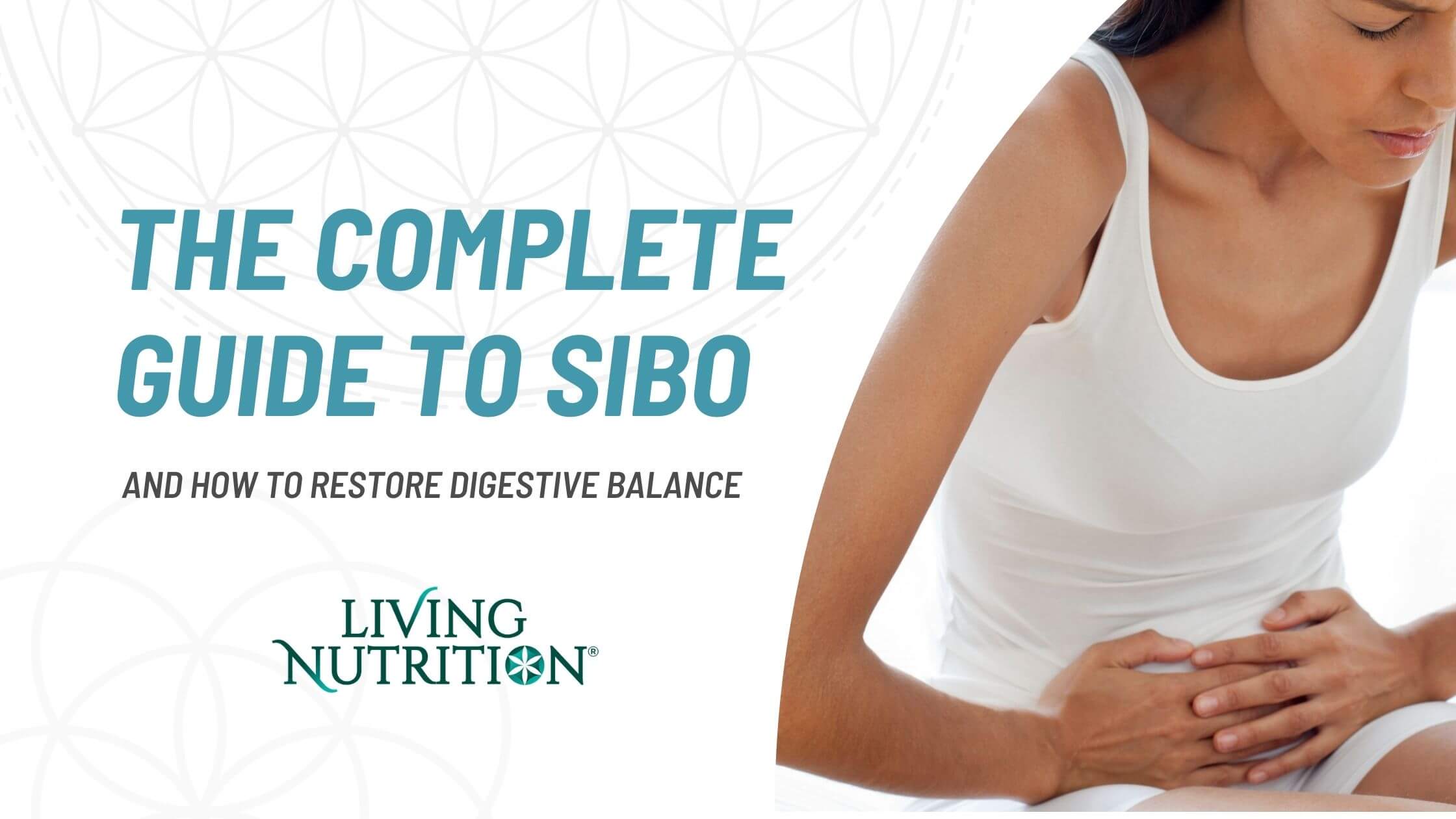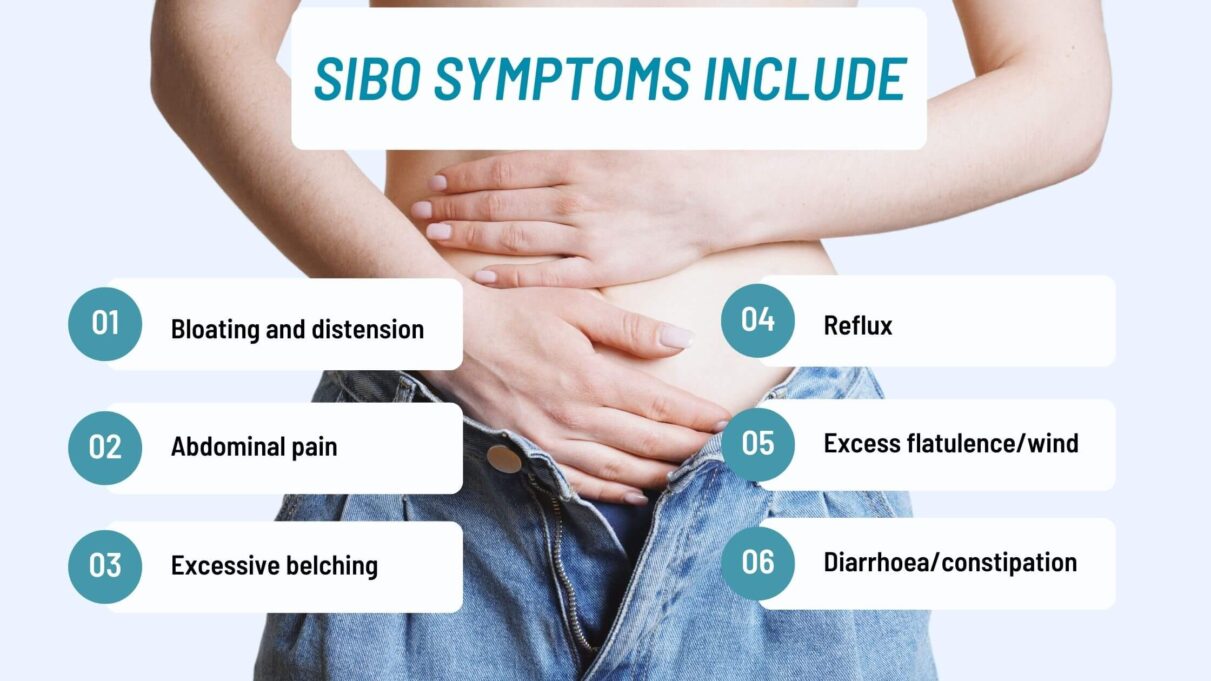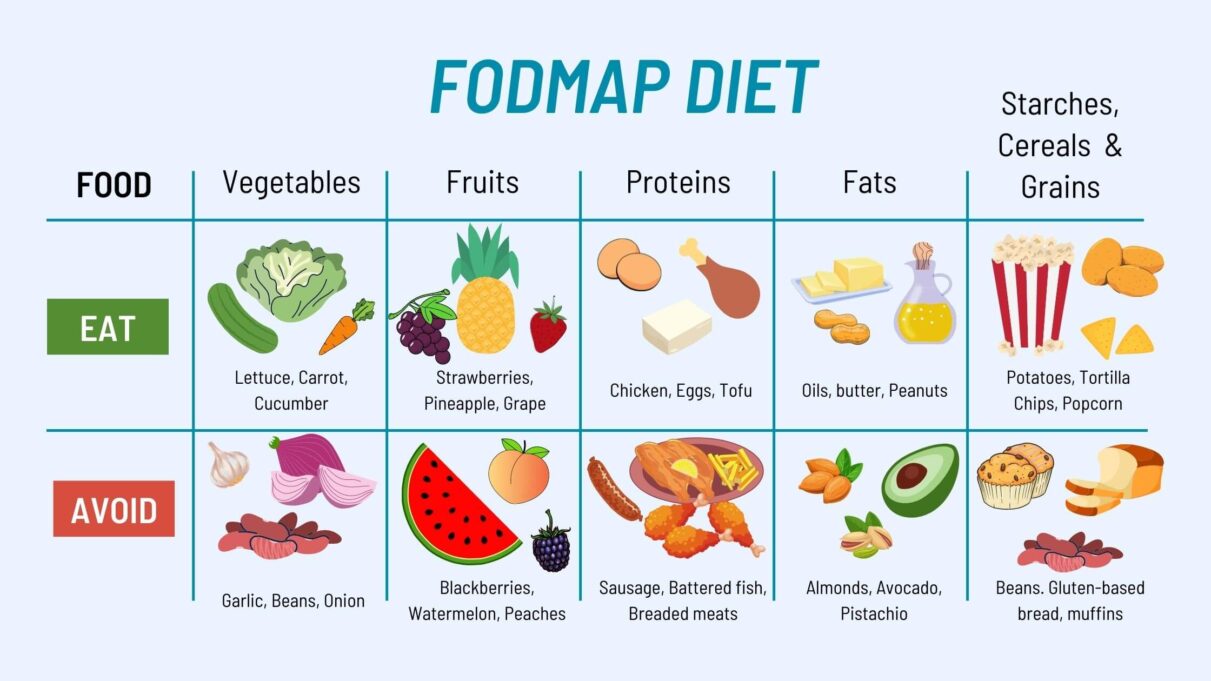
SIBO — or small intestinal bacterial overgrowth — is caused when bacteria that are normally present in the large intestine start to grow in the small intestine. Most often SIBO is caused by an overgrowth of the wrong types of bacteria that actually belong in the colon. Unlike the large intestine, the small intestine normally has relatively few bacteria due to the rapid flow of contents and presence of bile.
SIBO can occur when a circumstance — such as surgery or disease — slows the passage of food and waste products in the small intestine, creating a breeding ground for bacteria. The excess bacteria may produce toxins which cause digestive symptoms and may cause weight loss and interfere with the absorption of nutrients.
SIBO cases can vary from being only mildly symptomatic to chronic. SIBO symptoms include:

SIBO develops when the normal mechanisms that control the bacterial populations are disrupted. Bacterial overgrowth is usually kept in check by gastric acid secretion and normal motility, but if either of these are diminished it can lead to an overgrowth of pathogenic forms of microorganisms, inflammation in the intestinal tract, and an array of symptoms.
There are several risk factors and SIBO causes include:
SIBO can also cause further problems including malnutrition, leaky gut, and weight loss. As the absorption of carbohydrates, proteins, and fats is impacted, this can lead to poor absorption of vitamins, with associated deficiencies and further health issues.
To treat SIBO, you need to rebalance the gut bacteria, this should ease symptoms and help the body absorb more nutrients too. Diet can make a big difference to symptoms, and for many may provide enough relief that further treatment is not required. A good place to start is keeping a food diary to identify trigger foods and removing them for a short period to see if they are making symptoms worse.
One diet for SIBO which has been clinically proven is a low-FODMAP diet. FODMAP stands for fermentable oligosaccharides, disaccharides, monosaccharides, and polyols. These carbohydrates can be difficult to digest, they can sit in the gut where the small intestine bacteria may begin to ferment them, exacerbating symptoms . Avoiding these foods for a short period should help to reduce inflammation in the digestive tract and bacterial overgrowth in the small intestine.
FODMAPS to eliminate include:
Fructose found in some fruits, lactose found in dairy, fructans found in gluten, fruits, and some vegetables, galactans found in some legumes, and polyols which are often used as a sweetener.
This diet is a temporary elimination diet that typically lasts 2-6 weeks to decrease bacterial overgrowth before a gradual re-introduction of these foods.
A recommended diet for SIBO includes:

It can also be helpful to limit snacking during this time, which gives the migrating motor complex a chance to move bacteria and food remnants from the small intestine to the large intestine ready for excretion from the body.
Long-term avoidance of highly processed and refined foods, alcohol, sugary drinks, and more can help with management of SIBO and the avoidance of symptom recurrence.
Dietary changes can help with symptomatic management and also be utilised in combination with antibiotics or herbal anti-microbials for symptomatic relief and added benefits.
Antibiotics are a commonly prescribed SIBO treatment, unfortunately there is a high risk of recurrence of symptoms and relapse with antibiotics use alone.
Studies have shown incorporating probiotics and probiotic rich foods can reduce SIBO symptoms. Gut healing is also important as the gut may become leaky as a result of SIBO. Taking probiotics can help to rebalance and restore the health of the microbiome. Probiotics have been shown to be beneficial for SIBO treatment, especially alongside dietary changes (1, 2).
You can find probiotics and prebiotics in fermented foods like kefir, kimchi, yoghurt, and more as well as our fermented Your Flora range for digestive health.
Our Your Flora symbiotics are designed to holistically support the digestive ecosystem and naturally provide beneficial microorganisms with additional digestive nutrients, compounds, enzymes, and more that help to restore the intestinal lining, creating the right habitat for beneficial microflora to support them to survive, thrive, and colonise. The Your Flora range also contains additional herbs for symptomatic relief.
Try our Your Flora Terrain to soothe an inflamed digestive lining, or Your Flora Tranquil to aid with symptoms such as bloating and gassiness.

Nutritional support, particularly in those with weight loss or vitamin and mineral deficiencies, is an important component of SIBO treatment. Supplementation and maintenance of vitamin B12 and fat-soluble vitamin levels, and correction of any deficiencies, are key components of SIBO treatment also.
SIBO is often the consequence of some other imbalance within the body, so it’s important to address the root cause during a healing protocol. We recommend that you get the advice of a qualified practitioner as not all cases are the same. Reducing SIBO overgrowth usually requires a period of eradication using antibiotics, or herbal anti-microbials. It is also important to address nutritional deficiencies and work on the diverse root causes.
Many herbs have been shown to be as effective as antibiotics in the treatment of SIBO. Oregano is well-documented at killing and inhibiting the growth of intestinal microbes (3). Research also notes that allicin in garlic is most effective against methane-producing microbes (4) while herbs like oregano and berberine are more effective against hydrogen-producing bacteria.
At Living Nutrition we have formulated our Organic Sibo-Go blend to gently reset and rebalance the gut microbiome. This practitioner-formulated, bioactive combination of garlic, oregano, thyme, and cloves helps to support digestive balance.
These powerful herbs are rich in valuable micronutrients, enzymes, and full-spectrum compounds which work holistically together to support digestive health and wellbeing, and have traditionally been used to protect and defend against pathogens. Fermenting these herbs provides beneficial microbes and ensures gentle actions to reset and rebalance from within.
Don’t hesitate to start working on your digestive health, and grab our Sibo-Go with extra support from our Your Flora range to restore your inner balance today…
References
2: https://pubmed.ncbi.nlm.nih.gov/21381407/
3: https://www.ncbi.nlm.nih.gov/pmc/articles/PMC4030608/#R56
4: https://pubmed.ncbi.nlm.nih.gov/29023413/
Share this post
| Cookie | Duration | Description |
|---|---|---|
| __stripe_mid | 1 year | Stripe sets this cookie cookie to process payments. |
| __stripe_sid | 30 minutes | Stripe sets this cookie cookie to process payments. |
| _abck | 1 year | This cookie is used to detect and defend when a client attempt to replay a cookie.This cookie manages the interaction with online bots and takes the appropriate actions. |
| ak_bmsc | 2 hours | This cookie is used by Akamai to optimize site security by distinguishing between humans and bots |
| bm_sz | 4 hours | This cookie is set by the provider Akamai Bot Manager. This cookie is used to manage the interaction with the online bots. It also helps in fraud preventions |
| cookielawinfo-checkbox-advertisement | 1 year | Set by the GDPR Cookie Consent plugin, this cookie is used to record the user consent for the cookies in the "Advertisement" category . |
| cookielawinfo-checkbox-analytics | 11 months | This cookie is set by GDPR Cookie Consent plugin. The cookie is used to store the user consent for the cookies in the category "Analytics". |
| cookielawinfo-checkbox-functional | 11 months | The cookie is set by GDPR cookie consent to record the user consent for the cookies in the category "Functional". |
| cookielawinfo-checkbox-necessary | 11 months | This cookie is set by GDPR Cookie Consent plugin. The cookies is used to store the user consent for the cookies in the category "Necessary". |
| cookielawinfo-checkbox-others | 11 months | This cookie is set by GDPR Cookie Consent plugin. The cookie is used to store the user consent for the cookies in the category "Other. |
| cookielawinfo-checkbox-performance | 11 months | This cookie is set by GDPR Cookie Consent plugin. The cookie is used to store the user consent for the cookies in the category "Performance". |
| elementor | never | This cookie is used by the website's WordPress theme. It allows the website owner to implement or change the website's content in real-time. |
| PHPSESSID | session | This cookie is native to PHP applications. The cookie is used to store and identify a users' unique session ID for the purpose of managing user session on the website. The cookie is a session cookies and is deleted when all the browser windows are closed. |
| viewed_cookie_policy | 11 months | The cookie is set by the GDPR Cookie Consent plugin and is used to store whether or not user has consented to the use of cookies. It does not store any personal data. |
| Cookie | Duration | Description |
|---|---|---|
| _mcid | 1 year | This is a Mailchimp functionality cookie used to evaluate the UI/UX interaction with its platform |
| mailchimp_landing_site | 1 month | The cookie is set by MailChimp to record which page the user first visited. |
| Cookie | Duration | Description |
|---|---|---|
| _ga | 2 years | The _ga cookie, installed by Google Analytics, calculates visitor, session and campaign data and also keeps track of site usage for the site's analytics report. The cookie stores information anonymously and assigns a randomly generated number to recognize unique visitors. |
| _gat_gtag_UA_57442626_1 | 1 minute | Set by Google to distinguish users. |
| _gcl_au | 3 months | Provided by Google Tag Manager to experiment advertisement efficiency of websites using their services. |
| _gid | 1 day | Installed by Google Analytics, _gid cookie stores information on how visitors use a website, while also creating an analytics report of the website's performance. Some of the data that are collected include the number of visitors, their source, and the pages they visit anonymously. |
| Cookie | Duration | Description |
|---|---|---|
| _fbp | 3 months | This cookie is set by Facebook to display advertisements when either on Facebook or on a digital platform powered by Facebook advertising, after visiting the website. |
| fr | 3 months | Facebook sets this cookie to show relevant advertisements to users by tracking user behaviour across the web, on sites that have Facebook pixel or Facebook social plugin. |
| test_cookie | 15 minutes | The test_cookie is set by doubleclick.net and is used to determine if the user's browser supports cookies. |
| Cookie | Duration | Description |
|---|---|---|
| _tcfpup | 5 years | No description available. |
| _tcSecSess | session | No description available. |
| _tcSessInfo | session | No description available. |
| CookieLawInfoConsent | 1 year | No description |
| cookies.js | session | No description available. |
| m | 2 years | No description available. |
| ti_ukp | 5 years | No description available. |